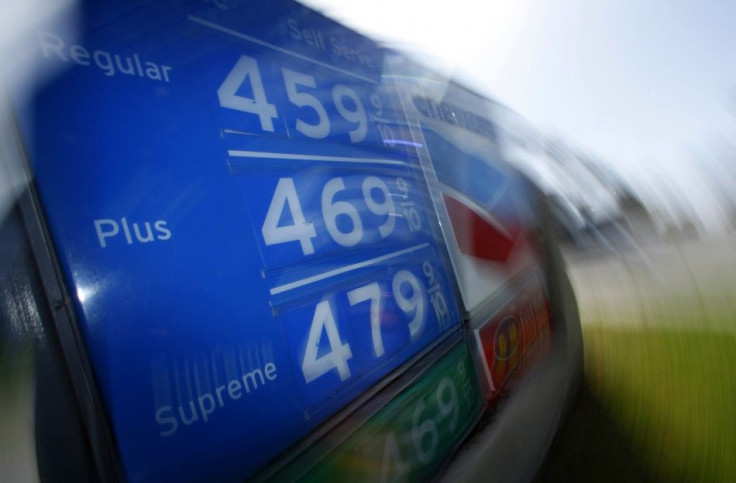Rising Gas Prices: Five Reasons to Bet on Five Dollars-a-Gallon

Just over $3.72: that's the average price for a gallon of gasoline as reported on Monday by the U.S. Energy Information Administration (EIA). And if you think that's bad, hold tight -- the rate of increase is looking pretty steep. Is it possible we'll see a $5 gallon anytime soon? Here are five signs that point to yes.
Iran: Shorter Supply and Greater Demand
Multilateral sanctions on Iranian crude will raise fuel prices worldwide, and the situation isn't likely to reverse course anytime soon. On Tuesday, U. S. Secretary of State Hillary Clinton asserted her commitment to implementing the new Iran sanctions aggressively in front of a Senate panel. European Union member states and Japan, she said, have been among the most visible in taking steps to comply with U.S. sanctions by cutting down on crude imports from Iran. But as more countries agree to do the same, other oil sources will respond to increased demand with price hikes. For its part, Iran has exacerbated the fear of rising costs by threatening to close the Strait of Hormuz, the waterway trough which a fifth of the world's crude oil is shipped.
Geopolitics: Turmoil Creates Uncertainty
Outside of Iran, there are other threats to worldwide oil production. In Venezuela, President Hugo Chavez is facing severe cancer-related health problems; meanwhile, the country is seven months away from a major election and the state's oil company is deep in debt to China. In Nigeria, militants associated with terrorist group Boko Haram have been targeting oil pipelines in attempts to effect chaos, only months after the country erupted in riots against a governmental decision to suspend fuel subsidies there. And in the Middle East, the world's most oil-rich region, the ongoing Arab Spring contributes to concerns about instability and volatility. As markets fret and supplies tighten up, gas prices can only rise.
United States: On the Move Again
Signs point to the beginnings of economic rebound in the United States. On Wednesday, the Bureau of Labor Statistics reported that unemployment has dropped in 48 states. That means a thicker wallet for the average citizen, which is good news everywhere except at the pump; greater public prosperity increases gas prices by driving up demand. And it's not just about automobiles -- demand will also rise for jet fuel, heating oil, asphalt, lubricants and other products made from crude. This will translate to a parallel rise in oil prices worldwide.
Closing Refineries: East Coast Transportation Woes
In recent months, two major U.S. refineries have shut down. Last September, ConocoPhillips ceased production at its 185,000 barrel-per-day refinery in Trainer, Pennsylvania. Sunoco followed suit in December by shuttering its 178,000 bpd refinery in Marcus Hook, Pennsylvania. The next shutdown may happen in June, when Sunoco plans to close its 335,000 bpd Philadelphia facility. Although resources exist to replace the lost gasoline for East Coast consumers, the EIA reported on Monday that the industry may not be able to overcome all of the logistical challenges in the Northeast for a year or more, as infrastructure changes will be necessary to accommodate the changing product flows. In other words, transportation costs will translate to higher prices at the pump.
Changing Seasons: America's 'Summer Blend'
There's always a spike in summertime gas prices, and it's not entirely due to increasing demand. Thanks to the Clean Air Act of 1990, gasoline is actually more expensive to produce during summer months. In warmer temperatures, hydrocarbons found in fuel can react to pollutants and form ozone, which leads to the smoggy haze commonly found over urban areas like Los Angeles and New York City. So a smattering of federal and local laws across the country mandate special summertime fuel blends containing less hydrocarbons and more pure oil. These cleaner, more expensive fuels are not offered during the winter because their low evaporation rate makes it hard to start automobiles in cold weather.
© Copyright IBTimes 2024. All rights reserved.





















